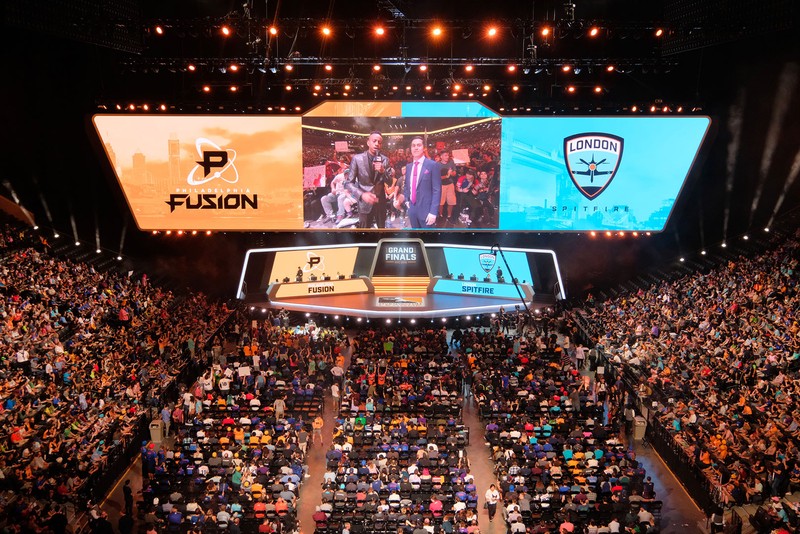
Most of the original OWL franchises were based in North America, with only one team based in Europe, the inaugural champions London Spitfire, and two in Asia, the Seoul Dynasty in Korea and the Shanghai Dragons in China.
The league had set it sights on becoming a true global competition, with the goal of having 28 teams across the world. For now the upcoming expansion will focus heavily on China, as the cities of Guangzhou, Chengdu, and Hangzhou will be getting Overwatch teams of their own.
This rapid expansion follows the significant success experience by the league in its inaugural season, bolstered by support from the heads of its first franchises – which included the owners of traditional sports teams such as the New England Patriots, New York Mets, and Philadelphia Flyers – alongside other endemic esports entities.
They will be joined by the bevy of new owners, including the Aquillini Group, owners of the NHL’s Vancouver Canucks, the Nenking Group, which owns the Guangzhou Lions of the Chinese Basketball Association, and a group headed by Mark Ein, owner of World Team Tennis’ Washington Kastles.
While Overwatch is already one of the top esports titles in North America, the OWL’s increased presence in Europe and Asia makes a lot of sense business-wise. China, in particular, has long been a hotbed for esports, while the European market has been steadily growing as of late.
The geo-located franchise system that the OWL employs is uncommon in esports, where teams usually march under the banners of different esports organizations and brands. OWL’s system is more akin to that of traditional sports teams, where teams are bound to specific cities, but the league believes that this approach helps to forge partnerships with businesses and sponsors on a local level, as well as generate revenue by building regional fan bases.
“We’re really starting to see real fan bases pop up, starting to see a partnership ecosystem emerge with sponsors and media rights partners and licensees and great owners,” said Pete Vlastelica, CEO of Activision Blizzard’s esports leagues in a statement.
There are significant logistical concerns however, especially considering that the OWL spans the breadth of North America then over to Europe and across the world to East Asia. In its inaugural season, the OWL held regular season matches in the Blizzard Arena in Burbank, California, while it held the playoffs in Brooklyn’s Barclays Center, home of the NBA’s Brooklyn Nets. However, the teams were still mostly based in North America back then and did not have to deal with too much travel time.
According to earlier comments from OWL officials however, the league’s teams will disperse to their assigned homes to hold local matches for the 2020 season.
The league has also made a point of adding franchises around the already existing teams that would face the most daunting travel times, hence the addition of the China-based franchises joining those in Seoul and Shanghai. The league remains heavily skewed towards the West however, with two teams in Paris and London for Europe, while the rest are in the United States and Canada.
Still, it’s a huge step forward for one the most heralded esports league today, and it still has a ways to go, considering its ambition.
“We know we’ve been ambitious from the start. We didn’t expect it to kind of get as much traction as quickly as it has […] There’s a lot of excitement around the league,” added Vlastelica.
(Image courtesy of Blizzard Entertainment)
Comments